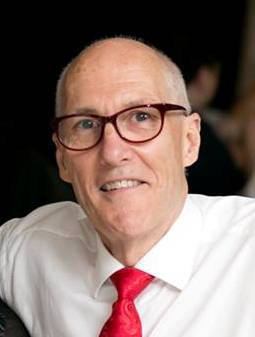Designer in the Spotlight – Paul Herring

Now in his mid 60’s, Paul Herring has proven that you are never too late to find your passion. After gaining the Certificate IV in Design of Kitchens, Bathrooms and Interior Spaces with DTA, he is now successfully working as a professional Designer and Project Manager for a prominent kitchen manufacturer on the Mid North coast of NSW.
We caught up with Paul and this is his story…
How long have you been in the industry? I was a relatively late bloomer as a designer of Kitchens, Bathrooms and Interior Spaces. While I held a position as a National Marketing Manager for kitchen and bathroom Company for some years in my earlier working career, my emphasis at that time was more on market penetration, and expanding and profiling the brand, rather than actually pursuing the more finite details within the actual design process itself.
Why did you get interested in design? Like the esteemed, highly qualified fields of Architecture and Interior Design, Kitchen and Bathroom Design, is among those somewhat fascinating professions that provide extraordinary satisfaction and enjoyment, for both the practitioner as well as the consumer or end user.
Those who take up these types of professions usually have an innate passion for what they do. They are normally innovative and creative, and have a tendency to think outside the box. They push the boundaries around what is possible when it comes to creating something very different and unconventional. In other words, they make a huge personal investment in developing ‘out of the ordinary’ outcomes in the overall design and development experience. If you don’t have these sorts of characteristics, chances are you are in the wrong profession.
What did you enjoy most about studying your Certificate IV in Design of Kitchens, Bathrooms and Interior Spaces? In 2009, I enrolled in the Kitchen Design program offered by DTA. As it turned out, it was the best decision I could have made. The syllabus is one of the most comprehensive and thorough offered by any related educators. Their trainers are among the best and clearly have extensive and long term industry experience. They not only test your capacity to truly understand what authentic kitchen design is all about, they also provide the ideal learning environment for people with differing skill levels. I suspect I might have been one of those who stretched the boundaries around assignment deadlines on a couple of occasions.
On completing my initial year of study in kitchen design, I had begun to develop a hunger for more information about other aspects of design within the home. As a result, I entered into the Bathroom Design program, which proved to be just as interesting and captivating.
And how has this qualification benefitted your work? Importantly, each of these 1 year programs includes all the aspects of designing the associated interior spaces within the home – which I felt was a real bonus. My first working role was a 2 year stint with a national home improvement organisation. This proved to be a very valuable learning ground for actually understanding all the underlying features of design, as well as the overall sequence of the installation process, together with the all the sub-‐trades involved.
What inspired you to get the qualification? I left the industry for a considerable number of years and became a partner in a business consultancy prospering organisational development and change. This incorporated leadership development, connecting teams, as well as the effective management of tension and conflict management between individuals and in workplace teams. In fact, it was not until my eventual retirement that I reignited my interest in creative design.
To my great fortune, part of my retirement package included the chance to re-educate myself, and to continue to make some sort of meaningful contribution in a working world. I think that is something all retiring people should at least consider in some form. It keeps the mind alert and provides you with an ongoing and genuine sense of purpose.
What advice do you have for others who are thinking about training in kitchen and bathroom design? My suggestions for anyone coming into the industry are to simply be yourself and not to get ideas above your station. It’s so much easier to be a first rate version of yourself rather than a second rate variety of someone else. This makes your role so much more satisfying, and brings out the best in you as designer, and also in you as an individual. And besides, most people see through those who tend to put up a front, or pretend to be someone they are not. People will very quickly lose interest in your ideas, and most importantly, in you as a designer.
Passion is the key! – A true passion for what you do, and a very real desire for making a difference and going the ‘extra mile’ for your client’s though innovative and creative design. And yes - even at my age, I still have a thirst for that!
